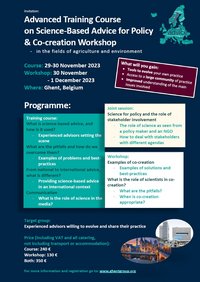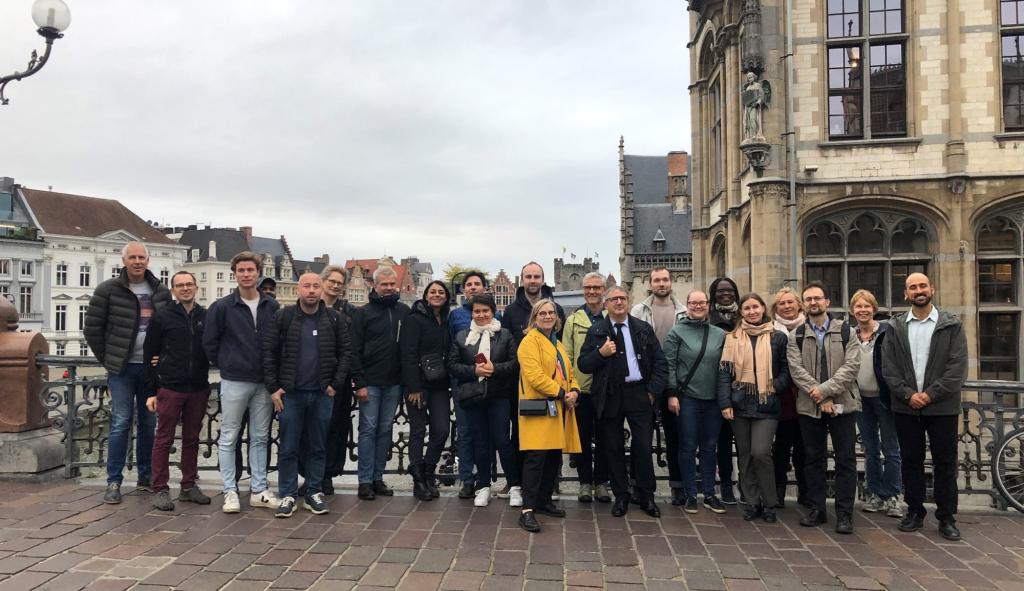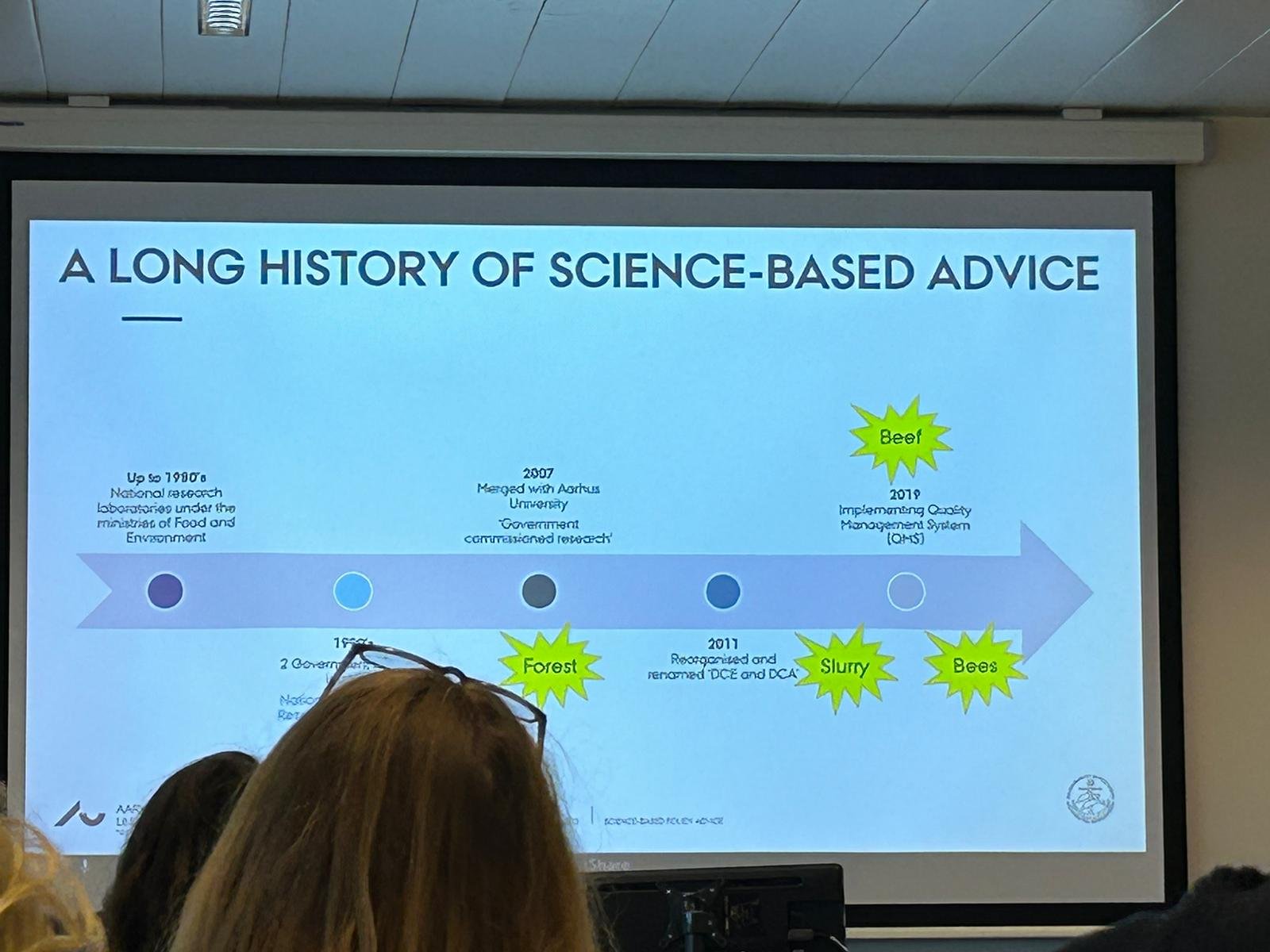- 29 -30 November: Advanced Training course on science-based advice for policy in agriculture and environment. See the course programme here.
- 30 November - 1 December: Co-creation workshop on science-based advice See the workshop programme here
- CREA – Council for Agricultural Research and Economics – Italy
- DCA - Danish Centre for Food and Agriculture & DCE – Danish Centre for Environment and Energy, Aarhus University – Denmark
- ILVO - Flanders Research Institute for Agriculture, Fisheries and Food – Belgium
- INRAE – French National Research Institute for Agriculture, Food, and Environment – France
- LUKE – Natural Resources Institute – Finland
- University Of Zielona Góra – Poland
- WUR – Wageningen University & Research – The Netherlands
30/11 What you should know when providing science-based advice in an international context?
Cases representing international harmonisation and collaboration on
policy advice:
Examples of providing expertise for EU policy.
- Eligio Malusà (see picture) (CREA): Coordination of multi-research fields to
produce quality advice, outreach,
and training in an international Consortium at the service of the EU. Experience from the Multi-country Advisory Services for Resilient Agri-Food Systems (ASRAFS) - Jan Tind Sørensen (AU): Example of providing expertise for EU policy
- Kati Vierikko (SYKE): Example of providing expertise for EU policy in Biodiversity
30/11What is the role of science in the media?
- Cristina Giannetti (CREA): Right contents for right information: can we do it? – Sharing workshops and seminars experience with journalists and media workers on research topics, to bridge the gap between science and society.
- Sandrine Vinzant (INRAE) Director of Communications
- Jelle Maas and Rens Koele (WUR): The Dutch lessons learned.
Background
The European Union as well as national governments have adopted ambitious climate andenvironmental targets for agriculture and food production. At the same time, an efficient and competitive agricultural and food sector is important for food supply and the economy. Decisions and regulations in this field can be both complicated and conflicting. The topics of agriculture, food, climate and the environment are therefore high on the political agenda, and there is a growing demand for scientific knowledge advising policy formulation.
16 - 17 March 2021. In 2021, Aarhus University hosted the first European Seminar on science-based advice in agriculture and environment
More than 200 researchers and advisers from all over Europe participated. One of the conclusions was, that there is a need to learn from each other, to share best practices and to discuss the main principles, in order to strengthen the evidence based policy development in Europe.
As a result, 7 European research institutes developed a first training course, open to experienced researchers and advisors from all of Europe.
- The Scientific Advice Mechanism (SAM) of the EC: its principles and working practices.
Renzo Tomellini Head of Unit , Scientific Advice Mechanism, DG Research & Innovation, European Commission
5-6 October 2022 First training course in Ghent, Belgium in October 2022
The Ghent Group is an informal community of European institutes and individuals working with science-based advice in the fields of agriculture and environment. The group has common interest in sharing best practices, learning and teaching.
Related: Science-Policy Interface (SASI-SPI)
A five-year EC project, the Sustainable Agrifood Systems Intelligence – Science-Policy Interface (SASI-SPI), led by Agrinatura (11.5M euros) currently involves a number of CIRAD researchers, the Swedish University of Agricultural Sciences (SLU), the ISA Universidade de Lisboa, Ghent university and iCRA.
See PAEPARD blog post: Sustainable Agri-Food Systems Intelligence – Science-Policy Interface.
The SASi-SPi has four specific objectives and corresponding work streams
- Provides fast-track intelligence within 72 hours upon request – twice per month. Led by the French agricultural research and cooperation organization working for the sustainable development of tropical and Mediterranean regions (CIRAD).
- Develops intelligence on four cross-cutting themes and will establish Science-Policy Labs to test and implement policy recommendations. Led by the Department of Plant Breeding, SLU. Professor Rodomiro Ortiz, SLU, is the coordinator.
- Works in close collaboration with the FAO team and the corresponding European Commission delegations on three countries. So far, Sierra Leone, Colombia, and probably Bhutan have been selected. Led by CIRAD, France.
- Provides communication in site and overall, for the project. Led by iCRA.





No comments:
Post a Comment